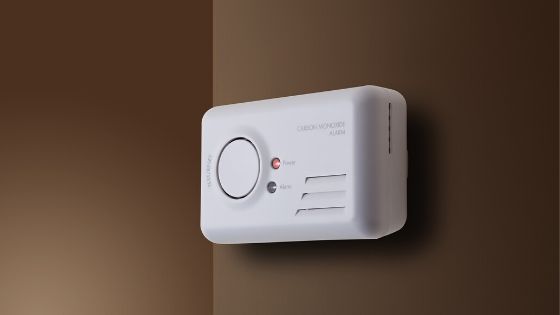Every year, hundreds of accidental deaths attributable to carbon monoxide poisoning occur in the United States alone. Worldwide, the number is much higher. Completely colorless, totally odorless, and virtually impossible to detect using only your senses, carbon monoxide is a poisonous gas that fools your body. Because it can chemically bond with other elements in your body, your lungs stop using regular oxygen and instead send CO through your bloodstream. Ultimately, this leads to loss of consciousness. Are there any links between air conditioners and carbon monoxide?
CO in the home is a threat, but properly managed, most people will never encounter a serious issue. Where does CO in the home come from, though? Typically, it is a component of fumes from the burning of a fuel or other material. Cars produce a lot of carbon monoxide in their exhaust, for example. Knowing that some of the HVAC equipment in your home uses fuel might make you worry that you’re at risk every time you turn the AC on in the summer. What’s the truth?
No Air Conditioners Make Carbon Monoxide
In short, there is no reason to ever worry about air conditioners creating carbon monoxide that could negatively affect the health of those in your home or business. Air conditioners only use electricity to power a refrigeration cycle, which extracts heat from inside your home and releases it outdoors. Electric fans blow the cooler air throughout your home. Contrast this mode of action with a furnace, which must burn fuel to create a flame that heats the air through a metal exchanger.
In that scenario, there is a potential for carbon monoxide to form as a product of the fuel’s combustion. Since an air conditioner doesn’t need to burn anything to function, it won’t produce CO — it’s as simple as that. If all you have in your home is an electric heater and air conditioner, there is little threat you face from CO.
When Should You Worry About Carbon Monoxide?
During the winter months, when you’re more likely to use your furnace equipment, CO may be more of a concern. Likewise, for those with gas appliances (such as water heaters, stoves/ovens, or clothes dryers), CO is also a risk. In most cases, the harmful byproducts of combustion leave your home via a vent pipe that channels the gases to the outdoors, where they dissipate safely. However, there are occasions when that might go wrong.
A cracked heat exchanger in your furnace is one problem that may cause a CO leak. Likewise, older furnace equipment is more likely to develop faults and leaks. Keep vents clear of debris and unobstructed so that gases do not re-enter or become stuck within your home. While you shouldn’t live in fear in CO, you should have a healthy respect for how to operate gas appliances safely.
Taking Precautions to Safeguard Your Home When Necessary
If air conditioners and carbon monoxide aren’t a problem, but actual gas appliances are, what can you do about the issue? The key is to take a few smart precautions early on, and then stay on top of your “to-do” list the rest of the year.
Begin by acquiring carbon monoxide detectors for important spaces such as your bedroom. You may also consider placing a detector in areas near the actual furnace or appliance equipment. These units will sound a loud alarm if it detects CO in the air above a certain concentration. Your alarm will warn you before the CO level is high enough to cause serious harm to your health, but it requires a prompt response. Exit the home and call your local fire department first. Remember to keep the batteries in your CO detectors fresh — they won’t help if they aren’t turn on, after all.
Have your equipment regularly serviced, especially your furnace. Seasonal service just before the time of year when you use it most is ideal. A professional HVAC contractor will examine your equipment and make suggestions if they find any risky damage. By staying proactive, you can manage the risks of CO.
Turn to a Professional Furnace Technician If You Have Concerns
While air conditioners and carbon monoxide are not linked in any way whatsoever, it is still essential to maintain your systems in good condition. For those who have furnaces that use oil or natural gas, you only need to worry about the threat of CO during the times of the year when you use such appliances. However, maintaining a CO detector is a good idea for most homeowners.
Still worried and want a professional to take a closer look? Ask for an inspection of your equipment to better understand its condition and upcoming maintenance milestones. With the right team, you can gain valuable peace of mind and prolong the life of your investment all at once.

